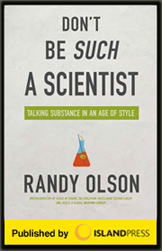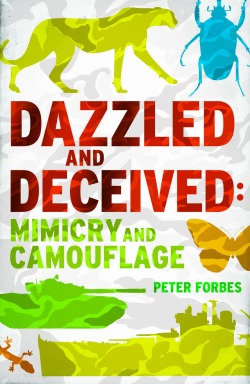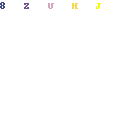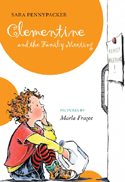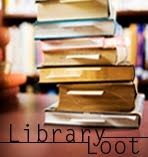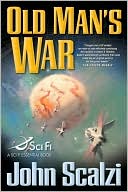 I've managed to read books from every state of the United States, plus the District of Columbia. Whew! This was the challenge that I feared leaving incomplete, since my plan of just reading all the books accidentally turned out to be a bad one and I was left with about twenty books needed for the last several weeks. Also, I'm now quite disgruntled at books with vague settings; in a few cases I actually emailed the authors to find out where the heck their books were set. This is particularly a problem for middle grade and young adult books, which I like reading.
I've managed to read books from every state of the United States, plus the District of Columbia. Whew! This was the challenge that I feared leaving incomplete, since my plan of just reading all the books accidentally turned out to be a bad one and I was left with about twenty books needed for the last several weeks. Also, I'm now quite disgruntled at books with vague settings; in a few cases I actually emailed the authors to find out where the heck their books were set. This is particularly a problem for middle grade and young adult books, which I like reading.
I may or may not manage to review all the books today, but I promise I've read them. I'll keep updating this post with the emergency reviews for the books I've finished in the past few weeks, when all blogging was suspended because reading time took precedence. I will say that I've really enjoyed the last few books, especially the nonfiction titles I picked up for a change of pace that made Rhode Island and Alaska such fun reads on the last day of the year.
I kept track of the states on my sign-up post, and I have a google map with pointers to the books I read. Making that was pretty exciting.
Hey, looking at the conclusion post on BookJourney's blog it appears that not finishing every state doesn't mean the list police will hunt you down. Huh. Anyway, it was a lot of fun and I'll probably do it again next year, but hopefully will pay attention and either permit myself to leave it incomplete or search out the books I need a bit earlier.
View Book Trip in a larger map
What did I read? * are the ones I really enjoyed, and the mini-reviews here probably mean I read it in the past two weeks. Or two hours.
Alabama: Bird, by Angela Johnson
Alaska: The Map of My Dead Pilots, by Colleen Mondor. A memoir about working with an airline in the frozen north, with all the fatalities involved. It becomes a musing on memories and meaning and loss that encompasses much of what I think Xianjing was trying for and I wasn't seeing in One Man's Bible. *
Arizona: Alien Tango, by Gini Koch
Arkansas: Daisy Bates: Civil Rights Crusader, by Amy Polakow. Daisy Bates was a black woman who helped organize the Little Rock 9 to integrate the high school and ran a newspaper that reported on civil rights abuses throughout America. This book gave a suspenseful description of her life and actions.
California: Mouse Tales, by David Koenig
Colorado: Children of the Waters by Carleen Brice
Connecticut: Because of Mr Terupt by Rob Buyea
Delaware: A Light in the Storm, by Karen Hesse. Again I'm surprised by the authors writing in the Dear America series books -- Karen Hesse has won Newbery awards. I thought this book gave a good sense of the culture and attitudes of people at the start of the civil war, although there wasn't much plot. Florida: You Don't Look Like Anyone I Know, by Helen Seller
Georgia: Darwen Arkwright and the Peregrine Plot, by A.J. Hartley
Hawaii: Under a Blood-red Sky, by Graham Salisbery. Historical fiction about a Japanese boy in Hawaii at right before and after the attack at Pearl Harbor. Good enough to make me want to read the sequel.
Idaho: One Door Away From Heaven, by Dean Koontz. My first Koontz, I found it interesting with vivid characters but too long for its chops and with a bit too much time spent in the eeeeevil killer's head.
Illinois: Yummy: The Last Days of a Southside Shorty, by G. Neri
Indiana: The Beef Princess of Practical County, by Michelle Houts. Straightforward and fun story of a girl learning to raise beef cattle and navigate some tricky situations during her twelfth year.
Iowa: Any Which Wall, Laurel Snyder
Kansas: Vengeance, David Thompson
Kentucky: Eli the Good, Silas House
Louisiana: Secrets of the Demon, Diane Rowland
Maine: Penderwicks at Pointe Mouette, Jeanne Birdsall
Maryland: Twist of Fate, M.J. Putney. Romance between an insecure lawyer transitioning from cutthroat corporate work to touchy-feely law and a ex-software magnate turned carpenter recovering from the execution of his serial killer brother. They bond over a last ditch effort to save an innocent guy from another execution. Aside from them not noticing the clear clues the author leaves them, it was a fun story with a cute love life.
Massachusetts: Clementine, Friend of the Week, Sara Pennypacker
Michigan: Working Words, ed. M.L. Liebler
Minnisota: Popcorn Days and Buttermilk Nights, Gary Paulsen
Mississippi: The Help, Kathryn Stockett
Missouri: Ghost in the Little House, William Holtz
Montana: The Whistling Season, Ivan Hoig
Nebraska: I Am a Man, Joe Starita
Nevada: Trick of the Light, Rob Thurman. Standard paranormal with secret identies, hot ladies, and dubious man-friends. Fun enough, and I like the strong emphasis on the action, not the sex.
New Hampshire: Horns, Joe Hill
New Jersey: The Half-Life of Planets, Emily Franklin & Brendan Halpin
New Mexico: Split, Swati Avasthi
New York: Every Time a Rainbow Dies, Rita Williams-Garcia
North Carolina: Wild Things, Clay Carmichael
North Dakota: Dakota Ambush, William W. Johnstone
Ohio: Sweet, Hereafter, Angela Johnson
Oklahoma: The Outsiders, S.E. Hinton. Hey, I didn't review this book club book? As angsty as I remember, we all approved of Ponyboy and his pals. My son gave it a thumbs up in his guest appearance.
Oregon: Nightfall, Ellen Connor. Oops, forgot to review this rather disappointing book about a group of people after the Apocalypse who battle bad guys who turn out to be werewolves and then discover they are changing themselves. Not as fun as it sounds.
Pennsylvania: Circles in the Stream (Avalon #1),
Rhode Island: Backyard Giants, Susan Warren. A tense year alongside amateur gardeners working towards growing a world record pumpkin. Warren got lucky in that this was a really good year for the R.I. pumpkin club she shadowed for this book.
South Carolina: Army 101: Inside ROTC in a Time of War by David Axe. Although Axe seems a bit puzzled about why anyone would want to join the military, he provides a good view on the lives of a corps of ROTC students and their struggles and hopes at the University of South Carolina.
South Dakota: High Plains Tango, Robert James Waller. Slight tale of a man moving to a small town where he beds two women, sights a supposedly extinct bird, and loses his house to a highway. The man is the illegitimate son of the guy from Bridges of Madison County.
Texas: Belly Up, Stuart Gibbs
Tennessee: Truth and Beauty, Ann Pratchett
Utah: Dinosaur Mountain, Deborah Kogan Ray
Vermont: How Tia Lola Ended Up Starting Over, Juliea Alvarez
Virginia: Paranormalcy, Kiersten White.
Washington: Five Flavors of Dumb, Anthony James
Washington DC: Liberty Porter, First Daughter by
West Virginia: Blue-Eyed Daisy, Cynthia Rylant. A year in a poor girl's life, where she meets her father over a hunting dog and makes connections at school.
Wisconsin: I Now Pronounce You Someone Else, Erin McCahon
Wyoming: Scumble, Ivy Law
